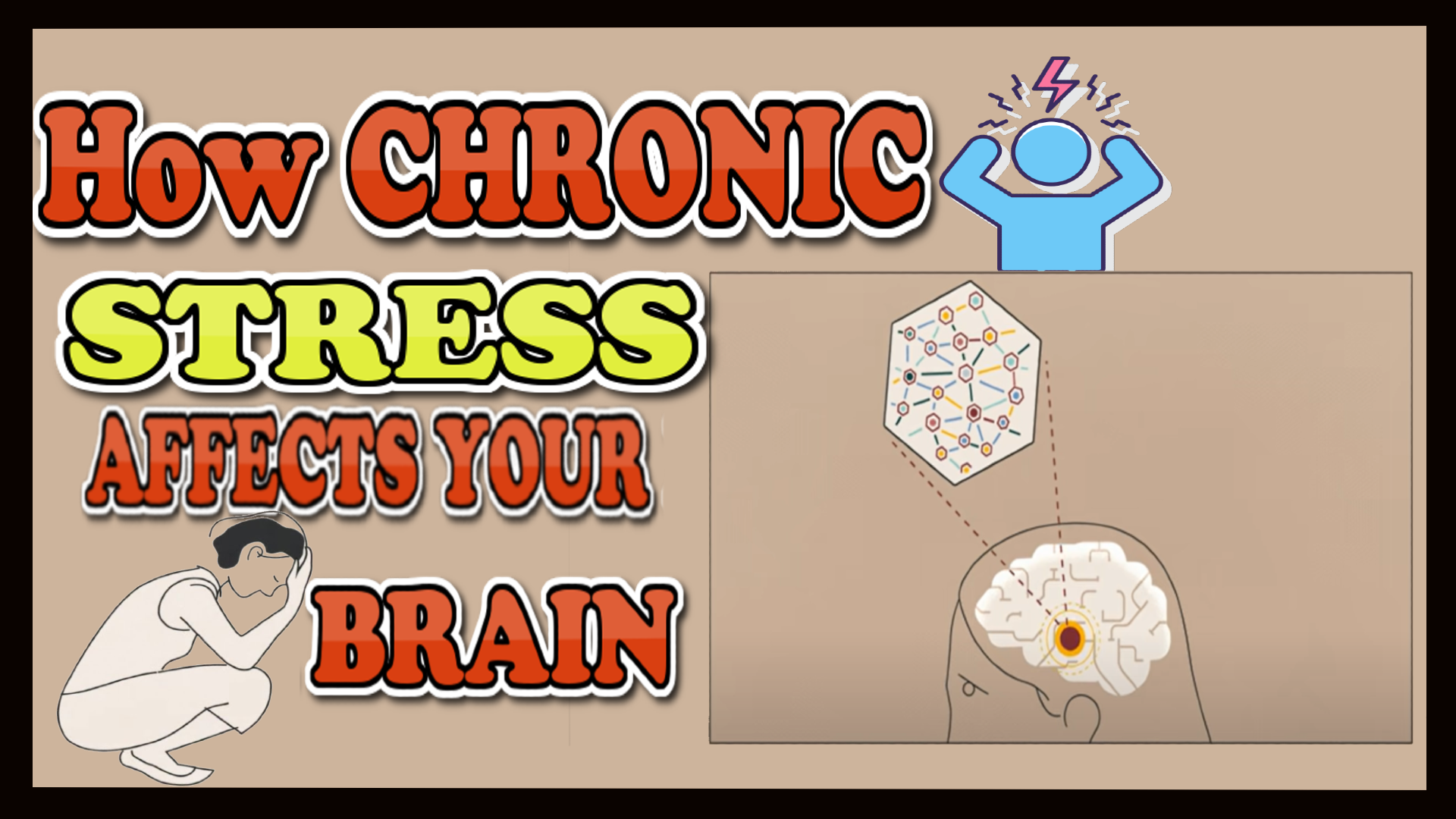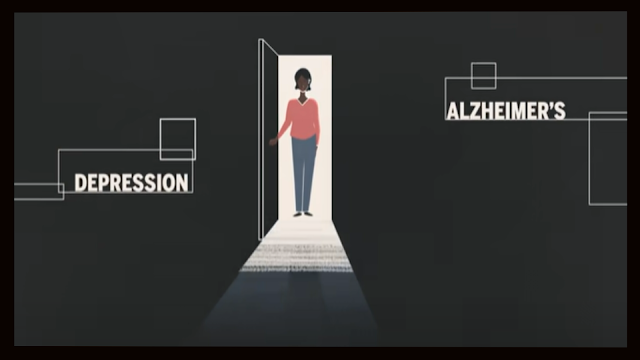Do you sleep restlessly, feel irritable or moody, forget little things, and feel overwhelmed and isolated?
Don't worry, we've all been there, you're probably just stressed, stress isn't always a bad thing. It can be useful for a burst of extra energy and focus, such as when playing a competitive sport or speaking in public. But when it's ongoing, the kind most of us deal with day in and day out, it actually starts to change your brain.
Chronic stress, like being overworked or having arguments at home, can affect the size of your brain, its structure and how it works, right down to the level of your genes, stress starts with something called the hypothalamic pituitary adrenal axis, a series of interactions between endocrine glands in the brain and kidney, which control your body's reaction to stress. When your brain detects a stressful situation, your HPA axis instantly kicks in and releases a hormone called cortisol, which primes your body for instant action. But high levels of cortisol over long periods of time wreak havoc on your brain. For example, chronic stress increases the activity level and number of neural connections in the amygdala, the fear center of your brain, and as cortisol levels increase, the electrical signals in your hippocampus, the part of the brain associated with learning, memories, and stress management, deteriorate. The hippocampus also inhibits HPA axis activity, so when it weakens, so does its ability to handle stress. However, this not all. Cortisol can literally make your brain shrink in size. Too much results in loss of synaptic connections between neurons and shrinkage of the prefrontal cortex, the part of the brain that regulates behaviors such as concentration, decision-making, judgment, and social interaction. It also leads to fewer new brain cells being produced in the hippocampus. This means that chronic stress can make it more difficult for you to learn and remember things, and also set the stage for more serious mental problems, such as depression and eventually Alzheimer's disease.
The effects of stress can seep into the DNA of your brain. An experiment showed that the amount of care a mother rat provides for her newborn baby plays a role in determining how that baby responds to stress later in life. Puppies from loving mothers were found to be less sensitive to stress because their brains developed more cortisol receptors, which bind cortisol and dampen the stress response.
Puppies from neglectful mothers had the opposite result and thus became more sensitive to stress throughout life. These are considered epigenetic changes, meaning they affect which genes are expressed without directly changing the genetic code. And these changes can be reversed if the mothers are swapped. But there is a surprising result. The epigenetic changes caused by a single mother rat were passed on to too many generations of rats after her. In other words, the results of these actions were heritable. It's not all bad news though. There are many ways to reverse what cortisol does to your stressed brain. The most powerful weapons are exercise and meditation, which involves taking deep breaths and being aware and focused on your surroundings.
Both activities reduce stress and increase the size of the hippocampus, which improves memory. So don't feel defeated by the pressures of daily life. Take control of your stress before it takes control of you.
















No hay comentarios.:
Publicar un comentario